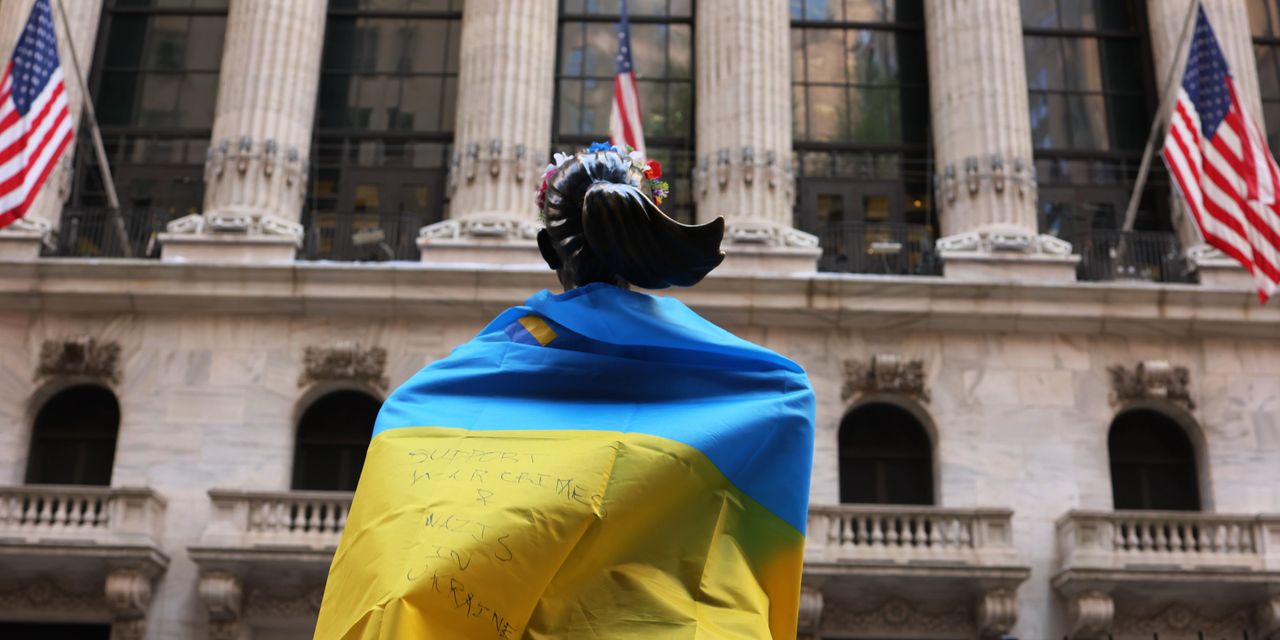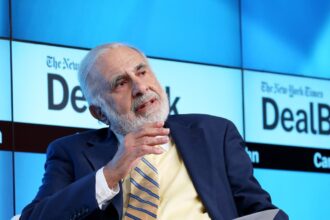In the year and a half since Russia launched its invasion of Ukraine, Ukraine’s government has been working to boost its economy with the support of foreign multinationals and financial giants such as BlackRock Inc.
Companies that have announced investments in the war-torn country include Nestlé
NESN,
consumer-goods giant Unilever NL:UNA UK:ULVR, brewer Carlsberg, and Irish building-materials company Kingspan
KRX,
which is investing €280 million (equivalent to $296 million) in Ukraine.
Ukraine has also been working with Blackrock
BLK,
on an investment fund to restore the country’s economy. The fund’s goal is to attract private and public capital for large-scale business projects in Ukraine. JP Morgan Chase & Co.
JPM,
is also advising Ukraine as it rebuilds its economy.
Related: Most Ukrainian companies are fully operational after 18 months of war, Kyiv-based American Chamber of Commerce says
In addition to these efforts, Ukraine is targeting U.S. investment firms in an attempt to boost the country’s small-to-medium-sized enterprises and create jobs, according to Sergiy Tsivkach, CEO of UkraineInvest, the Ukrainian government’s investment promotion office.
“We need to provide immediate support to Ukrainian SMEs,” he told MarketWatch. “They are in difficult shape in terms of access to funds, access to technology, and this is where the backbone of every economy, and the Ukraine economy, obviously lies.” Job creation is also key, according to Tsivkach, who notes that Ukraine has lost about 3.5 million jobs during the war.
As part of this effort, UkraineInvest is talking to a number of financial institutions in New York and Washington D.C. “On a smaller scale than BlackRock, obviously, but they are still capable of bringing investments,” Tsivkach said. “Different investment mechanisms need to be assessed, including blended finance and impact investing,” he added.
Related: How Ukraine is planning to recover with help from Western companies
UkraineInvest defines an SME as a business with 50 to 250 employees. In Ukraine, these span a wide range of industries, including FMCG (fast-moving consumer goods), machinery building, textiles, food, logistics, agricultural technology, and agricultural processing, which is transforming a raw agricultural product into another product.
“I think that one of our major roles now as UkraineInvest is to support SMEs in Ukraine, through financing and looking for partners for them,” the UkraineInvest CEO said. “And also help international SMEs enter Ukraine.”
“We need to pay special attention to SMEs,” he added. “They are different – they don’t have big legal teams to assess the whole region. They need to be fed, in a good way, analytical data, and support on the ground.”
Related: ‘Ukraine is open for business’: Western companies urged to be part of country’s recovery
Both multinationals and thriving SMEs are key to Ukraine’s economic recovery, Tsivkach told MarketWatch. “We need to have big companies … and we need a lot of SMEs to flourish throughout the country, and a distributed system of companies throughout the country,” he said.
Ukraine’s economic data certainly paints a stark picture. The country’s GDP fell by 30.4% in 2022, according to data from Ukraine’s Ministry of Economy.
Earlier this year, the government of Ukraine, the World Bank Group, the European Commission and the United Nations reported that the estimated cost of reconstruction and recovery in Ukraine has grown to $411 billion. Ukraine’s reconstruction and recovery cost is 2.6 times the country’s estimated 2022 gross domestic product, according to those organizations.
Related: Unilever CEO vows to look at Russian operations with ‘fresh eyes’ as pressure to exit the country mounts
But Tsivkach warns that the $411 billion figure could go much higher. “According to our experts in Ukraine, that could reach $1 trillion, or even go beyond, depending on when we will manage to win and to end this war,” he said.
UkraineInvest was created by the Ukrainian government in 2016 to attract foreign direct investment and assist existing investors in expanding their businesses in the country. Tsivkach has been in his role since 2020. Did he ever think that he would one day be seeking investments for a wartime economy? “Absolutely not, absolutely not,” he told MarketWatch. “That was something that no one believed, that that would happen.”
But, even after a year-and-a-half of war, the morale and spirit of the Ukrainian people remain at a high level, according to the CEO, who says that this is reflected in the country’s business community. “They will do business, and on [the] weekend they will buy supplies and go to [the] frontlines,” he said. “The country is united … everyone is trying to help each other.”
Read the full article here










